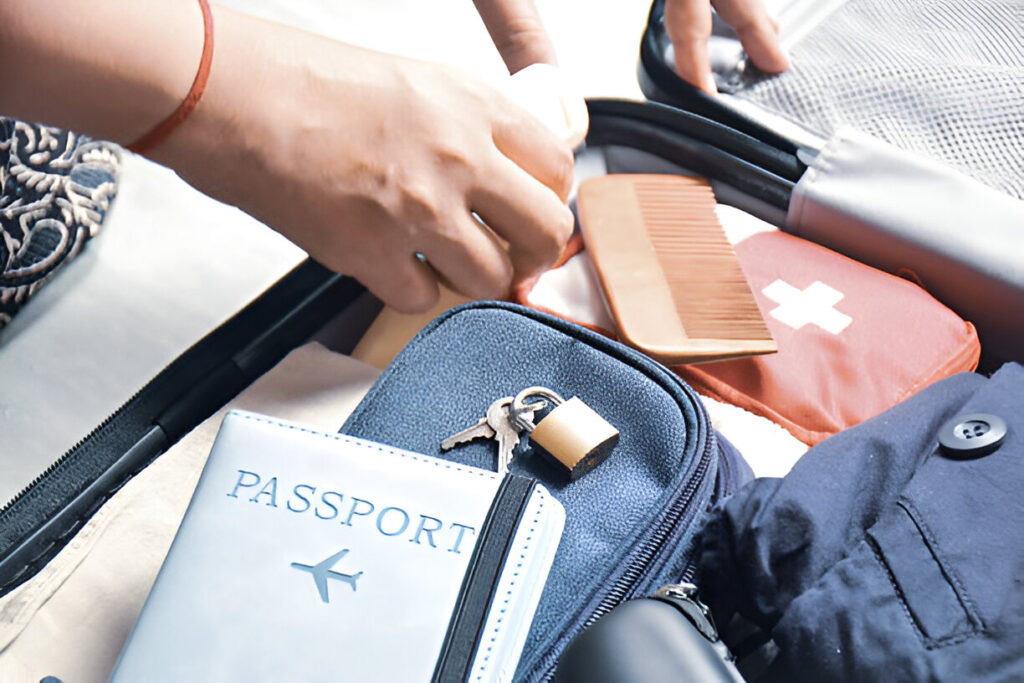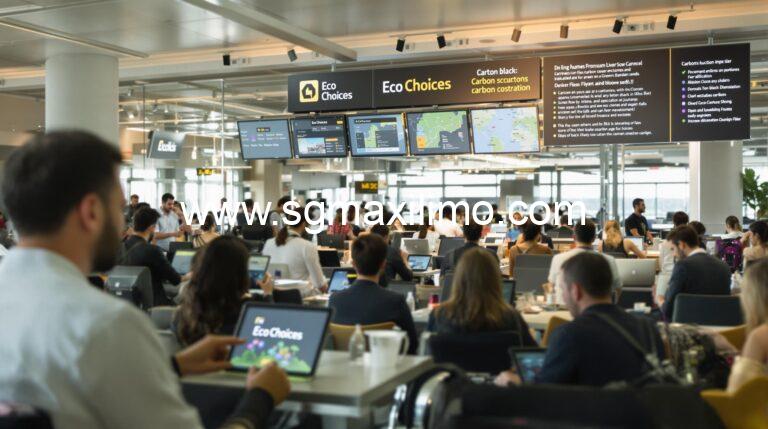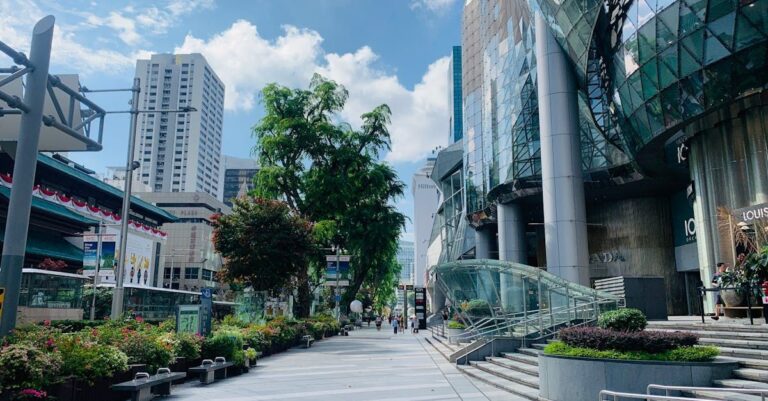Essential Business Travel Checklists for Every Traveler
Discover the most practical business travel checklists for professionals, families, and event planners. Simplify packing and travel organization with ease.

Business travel is supposed to be all about efficiency and productivity. Some might think it just means grabbing a passport and tossing a laptop into your bag. Yet here is what actually happens. More than 60 percent of professionals say they forget at least one critical travel item on every trip and small mistakes often snowball into chaos. A solid travel checklist does not just save time. It could actually be what protects your work, your safety, and your sanity this year.
Table of Contents
- Key Items For Business Travelers
- Packing Tips For Special Needs And Families
- Corporate And Event Travel Organization Essentials
- Travel Safety And Compliance Considerations
Quick Summary
| Takeaway | Explanation |
|---|---|
| Organize Essential Documentation | Maintain valid travel documents, receipts, and itineraries for efficient travel and reimbursement. |
| Ensure Technology Preparedness | Update security software, backup data, and use VPNs to protect digital assets while traveling. |
| Plan for Special Needs | Include comfort items, medications, and communication tools when traveling with individuals who have special needs. |
| Implement Safety Protocols | Conduct vehicle checks and ensure driver qualifications to enhance transportation safety for employees. |
| Develop Comprehensive Travel Strategies | Coordinate logistics, budget, and technology to create seamless corporate and event travel experiences. |
Key Items for Business Travelers
Successful business travel requires strategic planning and careful preparation. Every seasoned professional knows that the right items can make the difference between a smooth trip and a logistical nightmare. This section breaks down the critical components business travelers must consider to ensure a productive and stress-free journey.
Documentation and Travel Essentials
Preparing comprehensive documentation is the foundation of seamless business travel. According to the University at Buffalo’s travel guidelines, maintaining original receipts and documentation is crucial for expense reimbursement. Business travelers should compile a travel folder containing:
To help business travelers keep track of critical documentation, the following checklist summarizes the key items to prepare before departure and while traveling.
| Documentation Item | Important Details |
|---|---|
| Passport and Visa | Valid for at least six months beyond travel dates |
| Travel Itinerary | Includes flight and accommodation confirmations |
| Expense Tracking Folder | Collect original receipts for flights, hotels, meals, transport |
| Corporate Travel Authorization | Internal documentation required by your organization |
| Medical Documentation | Copies of medical records and physician details (if needed) |
| Emergency Contact Information | Up-to-date contacts for urgent situations |
- Passport and Visa: Ensure your passport is valid for at least six months beyond your travel dates
- Travel Itinerary: Detailed flight and accommodation confirmations
- Expense Tracking: Folder for collecting original receipts from flights, hotels, meals, and transportation
- Corporate Travel Authorization: Any required internal documentation from your organization
Beyond paperwork, digital preparedness is equally important. Temple University’s international travel recommendations suggest enrolling in the Smart Traveler Enrollment Program (STEP) to receive critical safety updates and emergency communications.
Technology and Communication Preparedness
Modern business travel demands robust technological readiness. The University of Denver’s IT travel checklist provides critical guidance for protecting digital assets. Professionals should:
- Device Security: Update all software and install the latest security patches
- Data Protection: Backup critical files to encrypted cloud storage
- Network Safety: Use a reliable VPN when accessing corporate networks from public internet connections
- Communication Tools: Carry portable chargers, international power adapters, and ensure mobile plans support international usage
For transportation within your destination, consider pre-booking reliable transportation services that offer corporate-friendly options like maxi cab rentals. Professional transportation ensures punctuality and comfort during business trips.
Additional recommended items include a compact travel first aid kit, professional attire that can be mixed and matched, noise-canceling headphones for productivity during transit, and a compact professional notebook for quick note-taking. By meticulously preparing these key items, business travelers can minimize potential disruptions and maintain peak professional performance throughout their journey.
Packing Tips for Special Needs and Families
Traveling with family members who have special needs requires careful planning and strategic packing. The right preparation can transform a potentially challenging journey into a smooth and enjoyable experience. Understanding specific needs and anticipating potential challenges are key to successful travel.
Essential Preparation and Comfort Items
The Deron School emphasizes the critical importance of packing comfort and essential items for individuals with special needs. Families should prioritize:
For travelers with special needs or families, it’s helpful to organize essential comfort and medical items with a structured checklist as follows.
| Item Category | Examples / Details |
|---|---|
| Comfort Objects | Familiar blankets, stuffed animals, sensory items |
| Medication | Original labeled containers, extra doses |
| Medical Documentation | Medical records, emergency contacts, physician details |
| Identification Cards | Special needs cards explaining requirements |
| Entertainment | Noise-canceling headphones, tablets, familiar items |
- Comfort Objects: Bring familiar blankets, stuffed animals, or sensory items that provide emotional security
- Medication Management: Pack all necessary medications in original labeled containers with extra doses
- Medical Documentation: Carry copies of medical records, emergency contact information, and physician details
- Identification Cards: Include special needs identification cards explaining specific requirements
Transportation can be particularly challenging. Consider booking specialized transportation services like wheelchair-accessible maxi cabs that accommodate diverse mobility needs. These services ensure comfort and safety for all family members.
Dietary and Nutritional Considerations
Princeton University’s Outdoor Action Guide highlights the significance of addressing dietary restrictions during travel. Families should:
- Meal Planning: Discuss and document specific dietary requirements in advance
- Snack Preparation: Pack familiar, safe foods that meet individual nutritional needs
- Allergy Management: Bring necessary allergy medications and clear communication cards about food restrictions
- Hydration: Carry specialized drinking containers or adaptive drinking tools
Travel Logistics and Communication Strategies
Friendship Circle recommends comprehensive preparation for air and ground travel. Key strategies include:
- Seating Arrangements: Book aisle seats for easy movement and bathroom access
- Entertainment: Pack noise-canceling headphones, tablets with downloaded content, and familiar entertainment items
- Communication Tools: Bring visual communication aids, noise-reduction accessories, or specialized communication devices
- Backup Documentation: Create laminated cards explaining individual needs for transportation and service personnel
Successful travel with special needs families is about anticipation, flexibility, and creating a supportive environment. By meticulously planning and packing with individual requirements in mind, families can ensure a comfortable and stress-free journey for everyone involved.
Corporate and Event Travel Organization Essentials
Successful corporate events and travel require meticulous planning and strategic organization. Companies must approach event travel with a comprehensive strategy that balances logistical efficiency, budget management, and participant experience. This section explores the critical components of organizing corporate travel and events.
Event Planning and Strategic Foundations
According to the Georgia Institute of Technology’s event planning guidelines, establishing a clear event purpose is the fundamental first step in corporate travel organization. Event planners should:
- Objective Setting: Define precise event goals and expected outcomes
- Participant Profile: Understand the demographics and specific needs of attendees
- Budget Allocation: Create a detailed financial plan covering transportation, accommodation, and event expenses
- Timeline Development: Establish a comprehensive planning timeline with clear milestones
Duke University School of Law’s event coordination recommendations emphasize the importance of early and thorough preparation. This includes selecting appropriate dates that minimize conflicts with other corporate schedules and ensuring venue accessibility for all participants.
Transportation and Logistics Management
Efficient transportation is a critical aspect of corporate event planning. Consider professional transportation services that offer corporate-friendly options like maxi cab rentals. These services provide:
- Group Transportation: Accommodate multiple participants with spacious vehicle options
- Professional Drivers: Ensure punctuality and reliability
- Comfort and Convenience: Provide comfortable travel experiences for corporate teams
- Flexible Booking: Adapt to changing travel requirements
Technology and Communication Integration
The University of Michigan’s Conference & Event Services highlights the significance of technological integration in modern corporate travel. Key considerations include:
- Communication Platforms: Utilize digital tools for seamless participant coordination
- Travel Management Software: Implement systems for tracking expenses and itineraries
- Digital Documentation: Create and share comprehensive event information electronically
- Backup Communication Strategies: Develop alternative communication methods for potential technological disruptions
Successful corporate travel organization goes beyond simple logistics. It requires a holistic approach that considers participant experience, technological efficiency, and strategic planning. By implementing comprehensive strategies and leveraging professional transportation and communication tools, organizations can create seamless and productive travel experiences that meet both business objectives and participant expectations.

Travel Safety and Compliance Considerations
Travel safety and compliance represent critical aspects of modern business travel, requiring comprehensive strategies to protect both individuals and organizational interests. Navigating the complex landscape of safety protocols demands proactive planning and strategic risk management.
Transportation Safety and Legal Compliance
According to the U.S. Department of Labor’s Transportation Safety Checklist, businesses must implement rigorous safety protocols when transporting employees. Key considerations include:
- Vehicle Inspection: Ensure comprehensive vehicle maintenance and safety checks
- Driver Qualification: Verify driver credentials and driving record
- Rest Period Monitoring: Implement strict guidelines for driver rest and shift duration
- Insurance Documentation: Maintain current and comprehensive transportation insurance
Consider professional transportation services that prioritize safety and compliance. Maxi cab rentals with professional drivers can significantly reduce organizational risk and ensure consistent safety standards.
International Travel Risk Management
The National Institute for Occupational Safety and Health recommends comprehensive international travel risk assessment. Businesses should develop strategies that address:
- Location-Specific Risks: Research destination-specific health and safety conditions
- Medical Preparedness: Obtain necessary vaccinations and medical clearances
- Emergency Contact Protocols: Establish clear communication channels for urgent situations
- Travel Insurance Coverage: Select comprehensive insurance plans with international protection
Information Security and Personal Protection
The FBI’s guidance for business professionals emphasizes protecting sensitive information during travel. Critical strategies include:
- Data Protection: Use encrypted communication channels and secure devices
- Personal Information Management: Minimize public sharing of travel details
- Electronics Security: Implement robust password protection and remote device wiping capabilities
- Threat Awareness: Train employees to recognize potential security risks
Effective travel safety goes beyond simple precautions. It requires a holistic approach integrating technological solutions, comprehensive training, and proactive risk management. By developing robust safety protocols and leveraging professional transportation services, organizations can create secure travel experiences that protect both human and organizational assets.
Frequently Asked Questions
What items should I include in my business travel checklist?
Ensure your checklist includes essential documentation such as your passport, travel itinerary, corporate travel authorization, and medical documentation, as well as technology preparedness items like device security, backup plans, and communication tools.
How can I prepare for traveling with family members who have special needs?
Pack essential comfort items, medications in original labeled containers, medical documentation, and entertainment options. Consider transportation needs and book specialized services if necessary.
What safety precautions should I take when traveling for business?
Conduct vehicle inspections, verify driver qualifications, monitor rest periods for drivers, and ensure you have comprehensive travel insurance and emergency contact protocols in place.
How can technology enhance my business travel experience?
Using technology like travel management software can help track itineraries and expenses. Additionally, employing a VPN for secure internet access and having a portable charger can enhance communication and device readiness during your trip.
Simplify Your Next Business Trip with Reliable Transportation in Singapore
Travelling for business often means juggling strict schedules, organizing essential documents, and ensuring every team member feels safe and comfortable. Many professionals worry about missed connections, unreliable rides, and meeting special needs like wheelchair accessibility or group seating. When your checklist is already overflowing with travel essentials and technology preparations, arranging seamless transportation should not add to your stress.
Let SG Maxi Limo help you travel smarter. From spacious maxi cabs for group travel to VIP limousines and wheelchair-accessible vehicles, every booking comes with upfront pricing and quick WhatsApp support. Take control of your travel logistics right now and secure professional, punctual service for your airport transfer, family trip, or corporate event. Visit SG Maxi Limo’s booking page today and experience peace of mind for your next business journey.








